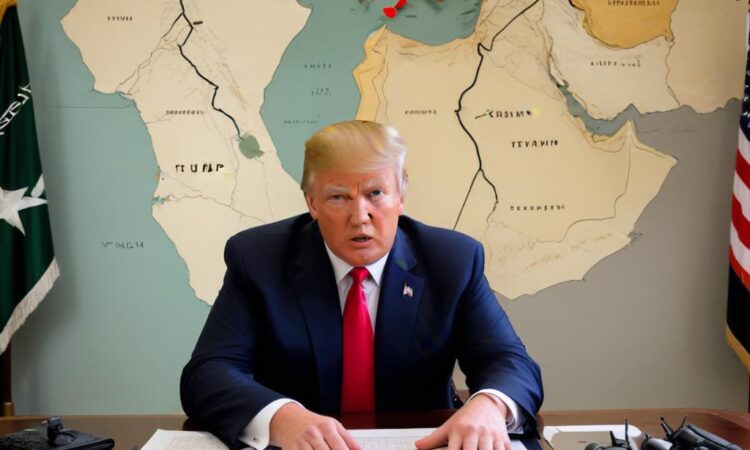Trump Threatens Hamas with ‘All Hell to Pay’ Over Hostages
President-elect Donald Trump has issued a stark warning to Hamas, vowing a forceful response if the hostages held in Gaza are not released by the time he returns to the White House. The statement, delivered during a brief press conference earlier today, marks a significant escalation in the rhetoric surrounding the ongoing hostage crisis.
Trump’s comments, delivered with characteristic bluntness, left little room for ambiguity. He stated unequivocally that the situation was unacceptable and that Hamas would face severe consequences for their actions. While he refrained from detailing the specifics of his planned response, his choice of words – “all hell to pay” – left observers anticipating a robust and potentially aggressive approach.
The President-elect’s statement comes amidst growing international pressure on Hamas to release the hostages. Numerous diplomatic efforts have been underway, involving various international actors, but to date, have yielded little progress. The lack of headway has evidently fueled Trump’s resolve, leading him to adopt a more assertive posture.
Analysts are divided on the potential effectiveness of Trump’s threat. Some believe that the strong rhetoric could indeed pressure Hamas into negotiating a release, while others fear it might escalate the situation further, potentially leading to unintended consequences and harming the hostages themselves. The delicate balance between decisive action and the need for de-escalation presents a significant challenge.
The precise number of hostages and their identities remain largely undisclosed, fueling speculation and concerns among their families and the wider public. The lack of transparency surrounding their captivity has hindered efforts to secure their release, complicating the already tense situation.
Trump’s vow to act decisively is likely to reignite the debate about the appropriate response to hostage-taking situations. The differing perspectives on whether forceful measures or diplomatic engagement yield better results are set to clash once again in the wake of this latest development.
The international community watches with bated breath as the deadline approaches. The coming days will be crucial in determining the fate of the hostages and in shaping the broader geopolitical landscape in the region. The pressure is now squarely on Hamas, and the world awaits their response to Trump’s forceful ultimatum.
The President-elect’s statement raises numerous questions about the nature of his planned response. Will it involve military action? Will it leverage economic sanctions? Or will it rely on a combination of strategies? These questions remain unanswered, adding to the uncertainty surrounding the unfolding events.
Many are concerned about the potential for collateral damage in any military response. The densely populated nature of Gaza raises significant concerns about the safety of civilians caught in the crossfire. Balancing the need for a decisive response with the imperative to protect innocent lives presents a formidable challenge for any potential intervention.
Beyond the immediate implications for the hostages, Trump’s statement also highlights the complexities of US foreign policy in the Middle East. The ongoing conflict between Israel and Hamas underscores the deep-seated tensions and the challenges of achieving lasting peace in the region. Trump’s assertive stance could potentially reshape the dynamics of these long-standing conflicts.
The next few days will undoubtedly be crucial. The world waits to see how Hamas responds to the President-elect’s threat and what measures, if any, the incoming administration will take to secure the release of the hostages. The situation remains highly volatile, and the potential for further escalation remains a significant concern.
The lack of information about the hostages themselves adds another layer of complexity to the situation. Their identities, their well-being, and the conditions of their captivity remain largely unknown, fueling anxieties and hampering efforts to secure their safe return.
This event underscores the urgent need for a comprehensive and coordinated international effort to address the root causes of the conflict in the region. Sustainable peace will require not only the immediate resolution of the hostage crisis but also a long-term commitment to addressing the underlying political and economic issues that fuel instability.
The international community has a crucial role to play in de-escalating the situation and promoting a peaceful resolution. Diplomatic efforts must continue, alongside humanitarian aid to alleviate the suffering of civilians. The focus must remain on securing the safe release of the hostages and preventing further violence.
The coming days will test the resolve and the diplomatic skills of all parties involved. The world watches closely, hoping for a peaceful resolution that prioritizes the safety and well-being of the hostages and prevents further escalation of the conflict.
The gravity of the situation cannot be overstated. The potential consequences of miscalculation are profound, and the need for careful consideration and measured responses is paramount.
Trump’s strong words have undoubtedly raised the stakes. The international community now waits with bated breath to see how this unfolding drama will play out and what the ultimate consequences will be.
The situation remains fluid and rapidly evolving. Further updates will be provided as they become available. The focus remains firmly on the safe return of the hostages.

